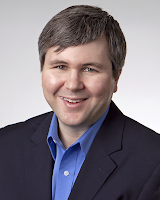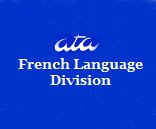 |
| Eric Bullington |
An interview by contributor Karen Tkaczyk.
For those readers who don’t know you, can you tell us a little about your personal and educational background?
I spent the 1990s traveling and living in Europe and North Africa and studying in the US. In 1997, I was awarded a bachelor’s degree in French by the College of Charleston, as well as a university specialization in the Classics (Greek, Latin, and classical civilization) called the Artium Baccalaureatus degree. I was introduced to the world of medicine and health in the late-1990s when I underwent training as an emergency medical technician; during training I completed over 200 hours of coursework in emergency medicine and worked alongside nurses and physicians both in the field and in hospitals. In 1999, I went toNew Orleans New Orleans Baltimore for a summer and completed 12 hours of graduate coursework in epidemiology and biostatistics from Johns Hopkins University
How or why did you get started in T&I?
It’s an interesting story. I was already fluent in French and Bosnian before I started my studies in public health atTulane University in New Orleans New Orleans
Do you have a good early story about your business?
If we are honest, I suspect that most translators have terrible yet revealing stories from their early years in the business, ones in which they end up pounding out 10,000 words of translation over a 24-hour period. Although intensively unpleasant at the time, these incidents do at times result in good stories (or at least interesting ones) and I certainly have my share of them. During my first year or two, I sometimes misjudged project deadlines and then stayed up all night to finish in time. Fortunately, those of us who stick with freelance translation live and learn; now, after ten years of full- and part-time work in the translation industry, I’m happy to have achieved a level of consistency and quality that is no longer conducive to that type of “good” story. An ideal project for me is an uneventful project where everything goes according to plan, even though such projects rarely lead to a good story.
Do you have a typical customer?
My typical agency client is one specializing in medical, or at the very least scientific, translations. And because of my background in international health and development, I’m picking up more and more direct clients in that area, many of whom are connected with the United Nations system or the United States Agency for International Development.
What is unusual or unique about your practice, in comparison to your competitors?
I’m quick to learn new computer-assisted translation (CAT) tools –or translation environment tools (TEnTs), if you prefer – and am happy to learn proprietary software for my clients, as long as I’m allowed to leverage my existing translation memories and terminology bases on the new software. However, I generally do not offer “translation-memory discounts” or “fuzzy match rates.”
Do you have a customer experience or feedback that you are most proud of?
My most recent direct client has both subject area expertise in the area of my translation, as well as fluency in both the source and target language, and she was very pleased with my work. It’s very rewarding for me to receive compliments directly from the end users of my translations, particularly when they are subject area experts.
Does your business have an online presence? A website, blog or a profile on social web spaces like Linked In, Facebook, MySpace or YouTube?
My main website is in a blog format (I use WordPress), and I feature my Twitter feed on my website’s home page (www.clinicaltranslations.com). I’ve been on LinkedIn since its beginning, and although not every interaction I’ve had has led to work, I have been able to connect with colleagues and potential clients, which has benefited my business in the end.
Do you do any non-profit work related to T&I?
Yes, I do frequent volunteer work for Doctors Without Borders/Médecins Sans Frontières (MSF). I contribute a great deal of unpaid work to MSF-USA, mostly in the form of translations but also some project management skills, such as earlier this year when I coordinated their translator response to the earthquake in Haiti. I also occasionally accept paid contracts from MSF-USA when they’ve specifically budgeted for a translation. This arrangement recently gave me the opportunity to translate a chapter from an MSF book on humanitarian assistance inNiger called A Not-so Natural Disaster: Niger ’05, edited by Xavier Crombé and Jean-Hervé Jézéquel and published by Columbia University Press in 2009. I donate my time and expertise to MSF because I strongly believe in their mission, but without question, this collaboration has been mutually beneficial. I’ve learned a lot from the projects I’ve done for them and met some very knowledgeable colleagues along the way.
Do you have an interesting story about a customer interaction you had?
Unfortunately, the most interesting customer interactions I’ve had are all bound by confidentiality agreements, so I can’t share them. But I can say that I had the opportunity to translate some interesting material in Bosnian relating to national security back when I did translations outside of the medical and pharmaceutical fields. And I’ve had a chance to translate the medical records of a world leader. But for me, every informed consent form or journal article that I translate is interesting – I genuinely enjoy what I do.
What are some of your greatest challenges in your business? Has the recession affected you in any way? If so, how so?
The greatest I challenge I have now is finding enough time to continue to conduct marketing for my business. I have enough client demand now that I could spend all of my time translating. Unfortunately, that type of monolithic business strategy will likely leave me with the same revenue in five years that I earn now. So I need to force myself to do whatever it takes – including turning down jobs – to make time to market my services to higher-paying clients.
I spent the 1990s traveling and living in Europe and North Africa and studying in the US. In 1997, I was awarded a bachelor’s degree in French by the College of Charleston, as well as a university specialization in the Classics (Greek, Latin, and classical civilization) called the Artium Baccalaureatus degree. I was introduced to the world of medicine and health in the late-1990s when I underwent training as an emergency medical technician; during training I completed over 200 hours of coursework in emergency medicine and worked alongside nurses and physicians both in the field and in hospitals. In 1999, I went to
How or why did you get started in T&I?
It’s an interesting story. I was already fluent in French and Bosnian before I started my studies in public health at
Do you have a good early story about your business?
If we are honest, I suspect that most translators have terrible yet revealing stories from their early years in the business, ones in which they end up pounding out 10,000 words of translation over a 24-hour period. Although intensively unpleasant at the time, these incidents do at times result in good stories (or at least interesting ones) and I certainly have my share of them. During my first year or two, I sometimes misjudged project deadlines and then stayed up all night to finish in time. Fortunately, those of us who stick with freelance translation live and learn; now, after ten years of full- and part-time work in the translation industry, I’m happy to have achieved a level of consistency and quality that is no longer conducive to that type of “good” story. An ideal project for me is an uneventful project where everything goes according to plan, even though such projects rarely lead to a good story.
Do you have a typical customer?
My typical agency client is one specializing in medical, or at the very least scientific, translations. And because of my background in international health and development, I’m picking up more and more direct clients in that area, many of whom are connected with the United Nations system or the United States Agency for International Development.
What is unusual or unique about your practice, in comparison to your competitors?
I’m quick to learn new computer-assisted translation (CAT) tools –or translation environment tools (TEnTs), if you prefer – and am happy to learn proprietary software for my clients, as long as I’m allowed to leverage my existing translation memories and terminology bases on the new software. However, I generally do not offer “translation-memory discounts” or “fuzzy match rates.”
Do you have a customer experience or feedback that you are most proud of?
My most recent direct client has both subject area expertise in the area of my translation, as well as fluency in both the source and target language, and she was very pleased with my work. It’s very rewarding for me to receive compliments directly from the end users of my translations, particularly when they are subject area experts.
Does your business have an online presence? A website, blog or a profile on social web spaces like Linked In, Facebook, MySpace or YouTube?
My main website is in a blog format (I use WordPress), and I feature my Twitter feed on my website’s home page (www.clinicaltranslations.com). I’ve been on LinkedIn since its beginning, and although not every interaction I’ve had has led to work, I have been able to connect with colleagues and potential clients, which has benefited my business in the end.
Do you do any non-profit work related to T&I?
Yes, I do frequent volunteer work for Doctors Without Borders/Médecins Sans Frontières (MSF). I contribute a great deal of unpaid work to MSF-USA, mostly in the form of translations but also some project management skills, such as earlier this year when I coordinated their translator response to the earthquake in Haiti. I also occasionally accept paid contracts from MSF-USA when they’ve specifically budgeted for a translation. This arrangement recently gave me the opportunity to translate a chapter from an MSF book on humanitarian assistance in
Do you have an interesting story about a customer interaction you had?
Unfortunately, the most interesting customer interactions I’ve had are all bound by confidentiality agreements, so I can’t share them. But I can say that I had the opportunity to translate some interesting material in Bosnian relating to national security back when I did translations outside of the medical and pharmaceutical fields. And I’ve had a chance to translate the medical records of a world leader. But for me, every informed consent form or journal article that I translate is interesting – I genuinely enjoy what I do.
What are some of your greatest challenges in your business? Has the recession affected you in any way? If so, how so?
The greatest I challenge I have now is finding enough time to continue to conduct marketing for my business. I have enough client demand now that I could spend all of my time translating. Unfortunately, that type of monolithic business strategy will likely leave me with the same revenue in five years that I earn now. So I need to force myself to do whatever it takes – including turning down jobs – to make time to market my services to higher-paying clients.
I’m very fortunate not to have been affected by the recession. Over the past year, my income has risen by as much as it rose in the years preceding the recession.
0





I have an undergraduate major in French from UIC 2006 but before that worked as a registered nurse for twenty years. I would be interested in doing minor translation work for free just for the practice. I presently working on passing some tests. gail
ReplyDelete